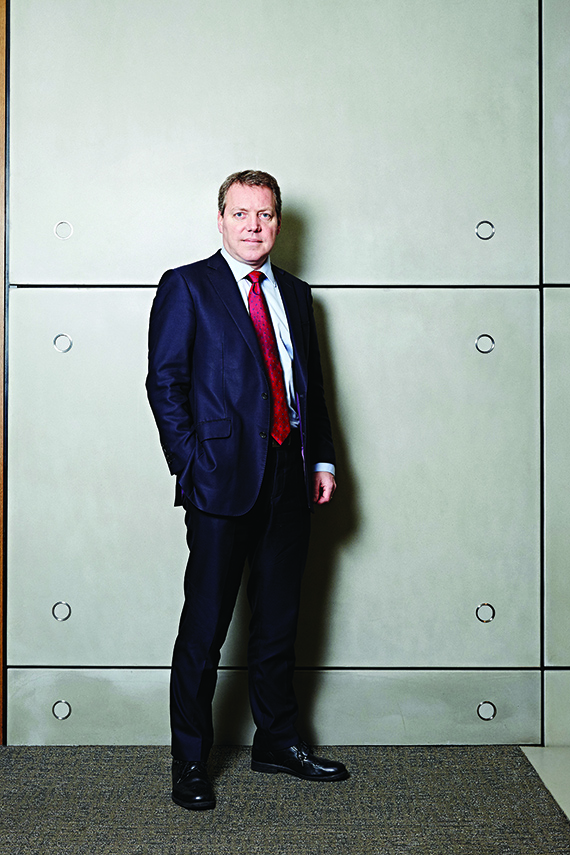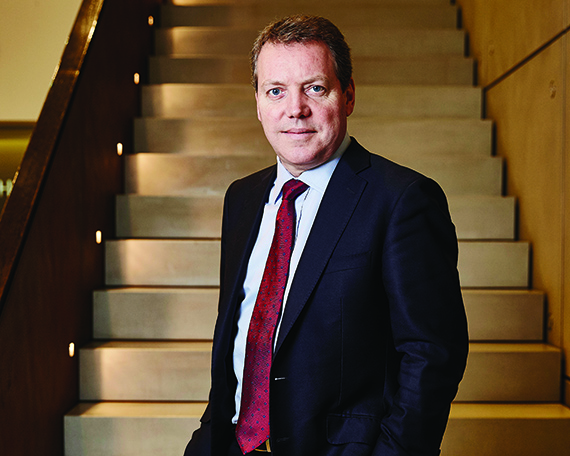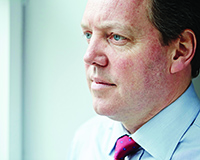
David Atkins has no regrets. Particularly regarding the sale of Hammerson’s London offices portfolio to Brookfield for £518m three years ago. The decision – which was taken to allow his company to focus solely on its retail business – is one Atkins stands by staunchly, unwaveringly and adamantly.
But speculation over whether it was the right decision relentlessly rears its head, given just how phenomenally the offices market has performed compared with retail over the past three years.
Off the back of impressive, and some might argue vindicating, results last month, Atkins is reluctant to address the question of whether things could have looked even rosier if offices were still part of the group’s portfolio. And while it comes as little surprise that it is a line of enquiry he is tired of tackling, it remains a valid one.
Here in the group’s Grosvenor Street offices, W1, the 48-year-old raves about retail, discusses Hammerson’s future strategy – including those takeover rumours – and insists that the performance of London’s office market is of no concern to him at all.
Accounting evidence
Hammerson’s latest results, released last month, are testament to Atkins’s case that the group’s performance has been impressive over the past year and that the business appears to be going from strength to strength.
Hammerson’s profit before tax more than doubled in 2014 to £703.1m, up from £341.2m the year before. The figures include valuation changes, with the property portfolio delivering revaluation gains of £547m. The REIT also posted an increase in EPRA net asset value per share of 11.3% – up from £5.73 as of 31 December 2013 to £6.38 by 31 December 2014. New rents of £29.5m were secured, compared with £23.9m the year before, covering 1.9m sq ft in 2014, ahead of 1.7m sq ft in 2013.
But against the backdrop of offices outperforming retail and Brookfield’s latest reported offices turnover increase of 42% – which is at least in part down to a strong offices portfolio – some have suggested that Hammerson’s move to retail at a time when the office market was too “high risk” was not necessarily the right one. Jefferies equity analyst Mike Prew went so far as to describe it as a “clear lesson in value destruction”.
Then there is the fact that Brookfield has since leased well in excess of 1m sq ft of the office space it acquired and analysts expect it has done exceptionally well out of the deal. “No one actually knows, because they haven’t been sold and they’re not publicly valued,” Atkins says. “But I don’t look at what they’ve done. What I do is look at what I’ve done with my money.
“While in the short term offices might have provided better returns, what you have to look at is what we did with the money. And we have gained a return of around 24% per year,” he says. “People are trying to make more of it than it really is. I have very happy shareholders who are glad that I made that shift and I don’t regret it for a moment.”
Cost-cutting mission
As for the future? Alongside Hammerson’s two flagship developments in Croydon and Brent Cross, Atkins is on a cost-cutting mission. One of the most significant aspects of it will come to fruition in June, when Hammerson relocates from Mayfair to King’s Cross. “The most significant reduction in cost is moving out of Grosvenor Street, where rents are significant. We feel we would be better served in a more affordable location,” says Atkins.
“Reducing the interest costs on our debt has been a significant part of our strategy in the past few years, so retiring relatively expensive debt of 4% and 5% and re-issuing debt at 1.5% to 2% drives higher bottom-line profits to our shareholders.”

In the wake of the sale of the offices portfolio and a continued focus on cost cutting, there has been talk in the market that the REIT is looking like an increasingly lean, attractive takeover target.
Atkins agrees that the REIT is an attractive asset and says that he is flattered that others might see it similarly.
“Very often there is speculation that a company may be looking at Hammerson. I take that as flattery. The reality is that I am here to run a business,” he says. “My job is to run Hammerson and to provide the best returns to Hammerson shareholders. That’s my job.”
Designer outlet designs
Despite the building tension around questions on the takeover rumours, Atkins does discuss some of Hammerson’s other future plans.
“There is more growth to come through the development pipeline, through our high-growth designer outlets sector, which no other listed company in Europe has exposure to,” he says. “It has had double-digit returns every year for five years and I believe it will continue to deliver that superior growth, so my focus is on continuing to deliver those returns.
“We have worked hard to manage the interest expense on our debt. We have issued some attractive bonds during the year at record low yields of 2%. It is an exceptional period of trading for a property company in terms of debt management.”
And ultimately – despite the stats, the figures, the returns and the criticism – Atkins puts Hammerson’s current success down to his focus on retail.
“There are clear benefits of specialism in property companies,” he says. “Everyone is focused on being great in that one, single area rather than trying to be good in two areas. And I think the focus for Hammerson should be, and will be, retail.”
A sentiment Atkins stands by staunchly, unwaveringly and adamantly.











